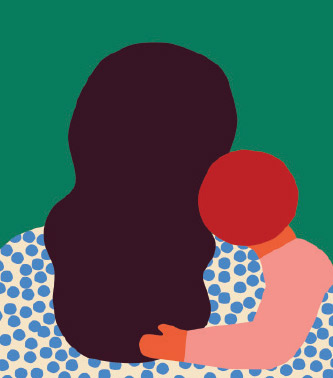Precision medicine customizes health care to the specific needs of an individual patient. Precision home visiting does the same for the developmental needs of infants and toddlers from socioeconomically disadvantaged backgrounds.
“Home visiting is a broad term of how we might provide child development services to low-income infants and toddlers who are at risk for developmental challenges because of their socioeconomic status,” explains Patricia Manz, professor of school psychology. “Precision home visiting is basically mirroring precision medicine in the sense that it calls for home visiting research that can identify what ingredients of home visiting work best for certain families. … It’s a new way of referring to a previously asserted standard, but it’s a standard that we haven’t met, especially when we talk about interventions for really young children and interventions for children who are culturally diverse or low-income.”
Some home visiting programs prioritize maternal health or parental economic status, while others target child development by working closely with the child’s primary caregiver to deliver services. Manz has focused on the latter. Those services, she says, can be delivered in many different ways, and their effectiveness relies upon high-quality delivery.
“Services need to be evidence-based, and most home visiting programs send home visitors out to the homes who are minimally trained, and so they’re not necessarily using best practices or evidence-based practices,” Manz says.






